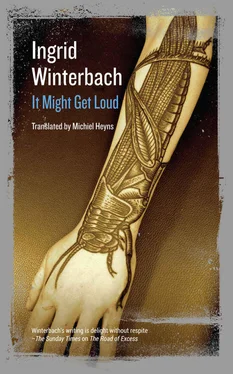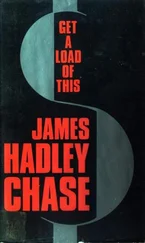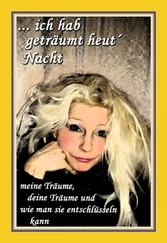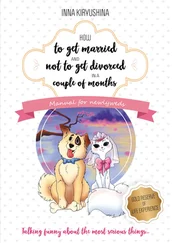She gives a frank account of her life. She was born in Viljoenskroon in the maize triangle. A bit of a neglected childhood there among the mealies, she says. Grew up poor. Her father was a miner first, then a foreman on somebody’s farm. Cheerless winters, everything the same colour. Mealies and mealie products she left behind her for good the day she got onto the plane. Did well at school and university. Got bursaries. Then an extended stay overseas: worked in London for the last fifteen years. Married, divorced. Recently returned to South Africa, appointed as director of the company. Did well for myself, she says with evident satisfaction, and she flutters her long eyelashes, she pouts her lips, she laughs boisterously, with winsome dimples in her cheeks, she crosses her legs, she displays exuberantly and skittishly her lovely, exorbitantly expensive shoes. But she has knock-knees and girlish wrists, and in her eyes linger the faint remains of a fear of penury, of a lack of opportunity.
For some reason Maria likes the woman. It could be the Daisy Duck lashes, it could be the knock-knees, it could be her dismal childhood in the maize triangle. She feels an urgent need to talk to somebody about Sofie, the more so after the unsettling meeting with Tobie Fouché. Surprised that she should want to open her heart to this unlikely woman — this cardboard-box tycoon.
‘My sister spent the last few years of her life here in this town,’ she says. ‘She committed suicide nine months ago.’
‘Oh dearie dear,’ says the woman, pouts her mouth and puts down her knife and fork. ‘Why did she do it?’
‘I don’t know,’ says Maria. ‘We didn’t have all that much contact before her death. I thought … I don’t know what I thought.’
‘What did she … how did she …?’ asks the woman.
‘She slit her wrists.’ (The most ritualistic, the most primitive form of suicide — the closest to self-slaughter, self-mutilation, to ritual sacrifice.)
‘Oh dearie dear,’ says Christina Groenewald once more, bats her lashed eyelids, pouts her mouth and knocks back a huge gulp of the expensive wine. ‘Did she have a husband, kids?’
‘She was divorced from her husband. Two children. She said to me once that it was immoral on her part to bring two innocent children into the world, because it’s better never to be born.’
‘Oh dear,’ says the woman, ‘how terribly sad.’ (Maria last saw the children briefly at Sofia’s memorial service. The son works in Australia, the daughter in the Eastern Cape. For searching conversations there was no opportunity on the day of the service. Both children took off again shortly afterwards.)
‘Yesterday I saw the man with whom she had a relationship for the last few years. A pain in the arse. He’s decided her unpublished work must be placed under embargo. She was a poet. My sister.’
‘A poet,’ says Christina, and puts down her knife and fork reverentially. Looks down, reflects, delicately picks between two upper molars with the manicured nail of her little finger. ‘A poet,’ she repeats, almost with awe.
‘Yes,’ says Maria. ‘A very, very good poet. A hundred, a thousand times better than the stupid man with whom she had the relationship. Also a poet. I don’t think she loved him. He won her over through sheer perseverance. A poseur and a chancer.’
‘Sheer perseverance,’ says Christina in wonderment, as if hearing the words again for the first time in a very long time. It seems to remind her of something, because she pouts her mouth (a nervous tic?), keeps pensively gazing in front of her, her chin now supported with her thumb, index finger on the upper lip.
‘My sister never wanted to discuss the relationship with me,’ says Maria. ‘Perhaps that was already the start of a kind of estrangement between us. I don’t know, perhaps it wasn’t even something like a personal estrangement, just my sister who had started to withdraw more and more from contact with people. She needed to shut herself off, I thought at times — perhaps that is what being a poet demands.’
‘What was her name?’ asks the woman.
‘Her name was Sofie,’ says Maria, ‘Sofia Steenkamp.’
*
She receives a text message from the man, the agricultural economist. He is back from his conferences in Malawi and Mozambique. Does she feel like going to Jacobsbaai with him? He’s in the Cape only for the weekend, the following week he’ll be on his way to Maputo again. Of course she feels like it. Let him tell her about food shortages and economic policy, about cosmic catastrophes. Let him tell her about the errant ways of the nation from which she sprang, their sustained unethical campaign of destabilisation against neighbouring states, which still has economic consequences for those countries. She likes listening (though sometimes somewhat distractedly). The moon will most certainly rise over the bay. There will be a fire in the hearth. It’s Thursday. He will come to pick her up the following afternoon.
The next morning Benjy phones her half-an-hour before an important meeting with the director of another company that she has to audit. Can she please come to pick him up immediately? It’s actually like in urgent. (He doesn’t sound well. He sounds stressed, even short of breath.) Where? At Skilpadkraal, just outside town, on the Polkadraai road. It’s on the left, coming from town; she can’t miss it. Drive in, he says, take the first right, carry on past the dam on the left. He’ll be waiting for her by the first cottage immediately after the trees. Does this have to do with the threat against his life? she asks. He can’t talk now, he says, he’ll explain later. She wants to ask some more questions, but he’s rung off already.
Immediately she’s overtaken by a blind panic. She thought the threat couldn’t just disappear like that without further ado, she thought he was hiding something from her. What does this mean — will she have to take him somewhere to hide for an indeterminate period? Perhaps he wants to hide out temporarily with her . It would have been useful to have more information about his predicament.
This means that she has to drop everything just like that. Everything that she’d planned for the rest of her stay in town. The audits, the visit to her parents’ grave, the visit to her friend Jakobus on the city farm. The audits she can do later, her parents’ grave she can always visit another time, Jakobus as well at the city farm, but what a pity that the weekend with the lover must also come to naught.
It’s a close, cloudy day; it looks as if it might rain, the mountains are still not visible — clad in mist since early morning. Beautiful, the day, the mountains in the mist, the vineyards changing colour. She has a miserable, sinking feeling in the pit of her stomach about Benjy, and a constricting anxiety in the region of her heart. Before leaving to fetch him, she tries once more to reach her ex-husband. He should know that his son’s life is in danger. But his cell phone is still switched off. What’s the use of time and again abusing him for never being available in a crisis.
She takes the Skilpadkraal turn-off. (Two painted tortoises on the stone wall, underneath the name. Apparently a self-catering resort.) Benjy is waiting for her outside the first cottage. He is looking terrible. It strikes her immediately. He is unkempt, unshaven, deathly pale, a bulky Yasser Arafat scarf around his neck. He has only a small rucksack with him. He greets her tersely, slides down deep into the seat and looks straight ahead of him. Just drive, Ma, he says. Where to? she asks. Doesn’t matter, he says. Anywhere. I suppose not back to Cape Town, she says (feebly). He shakes his head. She turns back in the direction of the town. Her hands on the steering wheel are sticky with sweat. Where to now? she asks as they enter the town. Carry on along Bird Street, and take the R304 out of town, he says.
Читать дальше












